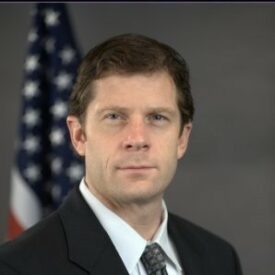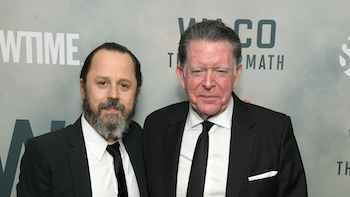Who is representing Texas Attorney General Ken Paxton in all of his various legal battles? The make-up of his defense teams have varied case-to-case, but some attorneys have been retained in almost all of the lawsuits Paxton faces. The Lawbook breaks it down.
New Law Will Reshape Privacy Regulation in Texas
Over Memorial Day weekend, the Texas legislature passed the Texas Data Privacy and Security Act. Texas is now poised to join a rapidly growing list of U.S. states that have passed “comprehensive” privacy regulations, a trend that began in 2018 with the enactment of the California Consumer Privacy Act. The TPDSA will likely have a much broader impact than the similar laws enacted in Virginia, Utah, Colorado and Connecticut.
Texas Employment Lawyers Talk FTC’s Proposed Noncompete Ban
The Texas Lawbook recently spoke to labor and employment lawyers in Texas about the proposal and what it would mean for both their employer clients and the litigation landscape statewide should the rule go into effect. The comment period, which was extended for an additional month because of the number of comments received, closed April 19 and garnered 26,814 responses.
New SEC Regional Director Eric Werner: ‘My Job is to Protect Investors’
Tuesday was Eric Werner’s second day as the new regional director of the U.S. Securities and Exchange Commission’s Fort Worth Office, and he already had hundreds of new emails to answer. In an exclusive interview with The Texas Lawbook, Werner discussed caseloads, resources and staffing, and the SEC’s lack of a Houston office.

SEC Names New Top Cop for Financial Institutions, Publicly Traded Businesses in Texas Region
The U.S. Securities and Exchange Commission has promoted Fort Worth Regional Office Associate Regional Director of Enforcement Eric R. Werner to the region’s top position – regional director.
The SEC’s decision to make Werner its top corporate cop in the region is garnering praise from lawyers who know him.
Texas Orders Cayman Islands Crypto Firm to Pay $424,000 and Cease Doing Business
The consent order is part of a nationwide investigation in which Nexo Capital Inc. agreed to pay $22.5 million in fines related to the sale of unregistered securities.

Prominent Texas Criminal Defense Attorney Gets the Hollywood Treatment
A new five-part Showtime series about the criminal trial of the Branch Davidians who survived the siege in Waco 30 years ago begins streaming today. Houston defense attorney Dan Cogdell, who won an acquittal for his client Clive Doyle, is played by the actor Giovanni Ribisi. The Texas Lawbook had a chance to chat with Cogdell about both experiences,the real and the cinematic.
Beyond Fraud: How the SEC’s Activision Case Portends Expansion of the Agency’s ESG Reach
The Securities and Exchange Commission doesn’t regulate everything a public company does. Or does it?
SEC practitioners are grappling with that question in the wake of the agency’s recent $35 million settlement with video game developer Activision Blizzard, where the SEC leveraged an inconspicuous internal controls rule to sanction alleged corporate conduct that had no evident impact on the company’s public reporting. Despite the hefty civil penalty, the Activision settlement does not entail allegations of fraud or deceit, or that Activision misstated or omitted anything at all. There are also no allegations that investors were harmed or put at risk.
Litigation Roundup: Wins for Baylor, A&M in Immunity Rulings, Cinemark Loses Covid Biz Interruption Fight with Insurer
In this edition of Litigation Roundup, the Texas Supreme Court upholds Texas A&M’s governmental immunity in a crash suit, and Cinemark loses a Covid business interruption claim against an insurer while Baylor University beats back a Covid-related breach of contract claim brought by two students.

‘So You’re Telling Me There’s a Chance!’
At a Texas Lawbook-SMU Forum, white-collar defense lawyers David Gerger and Tom Melsheimer reveal how they overcame big problems to win big cases.
- « Go to Previous Page
- Go to page 1
- Interim pages omitted …
- Go to page 13
- Go to page 14
- Go to page 15
- Go to page 16
- Go to page 17
- Interim pages omitted …
- Go to page 44
- Go to Next Page »
